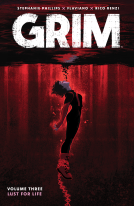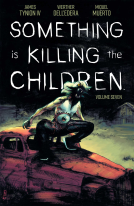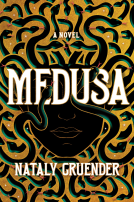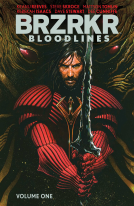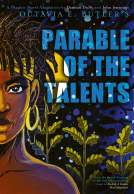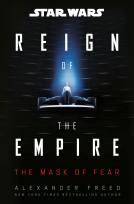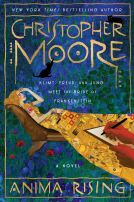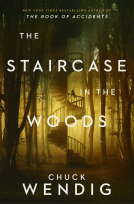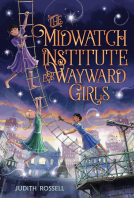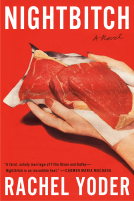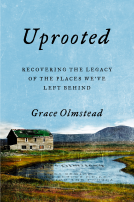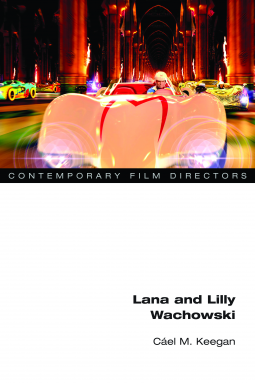
Lana and Lilly Wachowski
by Cael M. Keegan
This title was previously available on NetGalley and is now archived.
Send NetGalley books directly to your Kindle or Kindle app
1
To read on a Kindle or Kindle app, please add kindle@netgalley.com as an approved email address to receive files in your Amazon account. Click here for step-by-step instructions.
2
Also find your Kindle email address within your Amazon account, and enter it here.
Pub Date Nov 15 2018 | Archive Date Dec 21 2018
Talking about this book? Use #LanaAndLillyWachowski #NetGalley. More hashtag tips!
Description
Lana and Lilly Wachowski have redefined the technically and topically possible while joyfully defying audience expectations. Visionary films like The Matrix trilogy and Cloud Atlas have made them the world's most influential transgender media producers, and their coming out retroactively put trans* aesthetics at the very center of popular American culture.
Cáel M. Keegan views the Wachowskis films as an approach to trans* experience that maps a transgender journey and the promise we might learn "to sense beyond the limits of the given world." Keegan reveals how the filmmakers take up the relationship between identity and coding (be it computers or genes), inheritance and belonging, and how transgender becoming connects to a utopian vision of a post-racial order. Along the way, he theorizes a trans* aesthetic that explores the plasticity of cinema to create new social worlds, new temporalities, and new sensory inputs and outputs. Film comes to disrupt, rearrange, and evolve the cinematic exchange with the senses in the same manner that trans* disrupts, rearranges, and evolves discrete genders and sexes.
Cáel M. Keegan is an assistant professor of women, gender, and sexuality studies and liberal studies at Grand Valley State University.
Advance Praise
"This captivating book does more than argue persuasively for the centrality of the Wachowskis' oeuvre in the recent history of cinema: it demonstrates how their embodied transgender experience is a central component of their aesthetic vision, and how transgender experience has become paradigmatic of visual semiotic practices in the increasingly ubiquitous digital media environment. Keegan offers lucid close readings of the entire Wachowski filmography, while also mapping generative points of overlap and intersection between cinema studies and trans studies. It makes a significant contribution to both fields."--Susan Stryker, founding coeditor, Transgender Studies Quarterly
"This book is a revelation! Leaving behind the more pedestrian methods of examining cinematic narratives of transgender lives, Cael Keegan goes one huge step beyond. With this book on Lana and Lilly Wachowski, we have in our hands the first book to consider the transgender content of the Wachowskis' massively influential cinematic practice. The trans* cinema of the Wachowskis is, according to Keegan, not just disruptive and wildly imaginative, although it is definitely that, it also represents an expansion of the popular imagination and a very different sense of life in and beyond the matrix. Keegan gives a masterful account of the Wachowskis' world and drops his readers down the rabbit hole of a trans* altered reality. Bon voyage."--Jack Halberstam, author of Gaga Feminism: Sex, Gender, and the End of Normal
Available Editions
| EDITION | Other Format |
| ISBN | 9780252083839 |
| PRICE | $22.00 (USD) |
| PAGES | 216 |
Links
Featured Reviews
Keegan's text is a perfect theoretical and analytical resource for readers who enjoy cinema and gender studies. This book draws on phenomenology and heuristics in making its case for narratology and notes prominent voices from the research field.
Even more so, Keegan explores individual examples of films and provides multiples scenes and elements in making the case for analysis. Thoughtful, well-developed, and ideal for building conversation about society and art.
 catherine h, Reviewer
catherine h, Reviewer
The first encounter I had with the Wachowski's was The Matrix movie. I remember the "brothers names being everywhere at the time. A few years passed and I heard one on them switched genders, but didn't really pay much mind to it. Then I saw this book. I had to look into it. Well, it seems both brothers have now switched and are sisters. I had to read the book to puzzle this one out. Fans of the Wachowski's will find the book an entertaining and enlightening read. It's a great cinema study and look at transgender I've not encountered before. I'm sure that's true for many people. Fascinating and thought provoking.
 Brian F, Educator
Brian F, Educator
Keegan's book drawing upon the most recent iterations of queer theory and transgender theory offers a much needed re-evaluation of the Wachowski's oeuvre and style of filmmaking. Keegan makes a compelling argument that to truly understand the Wachowski's filmic output requires a willingness of scholars, critics, and moviegoers to analyze their films as transgender texts that in effect mark the beginnings of an authentic transgender cinema.
 Earl M, Reviewer
Earl M, Reviewer
In Lana and Lilly Wachowski, Cael Keegan reassesses the complete film oeuvre in light of their coming out as trans. Like any view through a very specific lens there are a couple of weak connections but overall the arguments Keegan puts forth are very compelling.
The films are approached chronologically, though connections are made forward and back, and this works very well. If you're familiar with the many academic interpretations of the films, particularly from Bound through the Matrix trilogy to V for Vendetta, you will be very pleased with the added levels Keegan adds. There is no attempt to make previous theoretical understandings less valid but rather to demonstrate the Wachowskis' overall work can be better understood through a trans* aesthetic.
Reading this reminded me of the new book Foucault at the Movies and the discussion there about the difference between finding where philosophical thought is illustrated in a film and in the possibility of film to be the message itself. Keegan makes a strong case that the Wachowskis aren't so much using philosophical thought and ideas in their films (though they certainly are) but rather creating philosophical texts in and of themselves. It isn't hard to see certain thinkers in the films, much like you can see Foucault in Judith Butler's work, but the films make their own fully contained arguments much as Butler's books make their own arguments. My use had always been to read into the films, such as Baudrillard in specific parts (or all of Speed Racer) rather than reading the films themselves as philosophical texts.
I found the discussion of the later movies particularly interesting. Many complaints centered on the action and effects overshadowing any narrative. This was also leveled against The Matrix as well. Keegan argues very eloquently that the action and the effects ARE the story as much as any other elements of the films. How the effects are used, the feelings they elicit, aren't just for entertainment or the thrills, they have meanings within the overarching narrative.
This is an academic book for the most part but is quite accessible for most readers. If you are familiar with various ideas within trans studies the reading is even more accessible, but Keegan makes his meaning clear even when he uses jargon from the field of study. This is not a biography and does not get into much that isn't directly applicable to a critical assessment of the films. For that reason this might not appeal to some readers who are looking for more of a biography or a behind the scenes tell all type book. But if you have enjoyed any or all of their films, or even had mixed feelings, this book will offer new and interesting ways to "see" these movies. the interview with Lana is also a wonderful glimpse into her thinking and, what I found interesting, her sincere interest in hearing what others think.
Reviewed from a copy made available by the publisher via NetGalley.
Readers who liked this book also liked:
Octavia E. Butler; Damian Duffy
Comics, Graphic Novels, Manga, Multicultural Interest, Sci Fi & Fantasy



